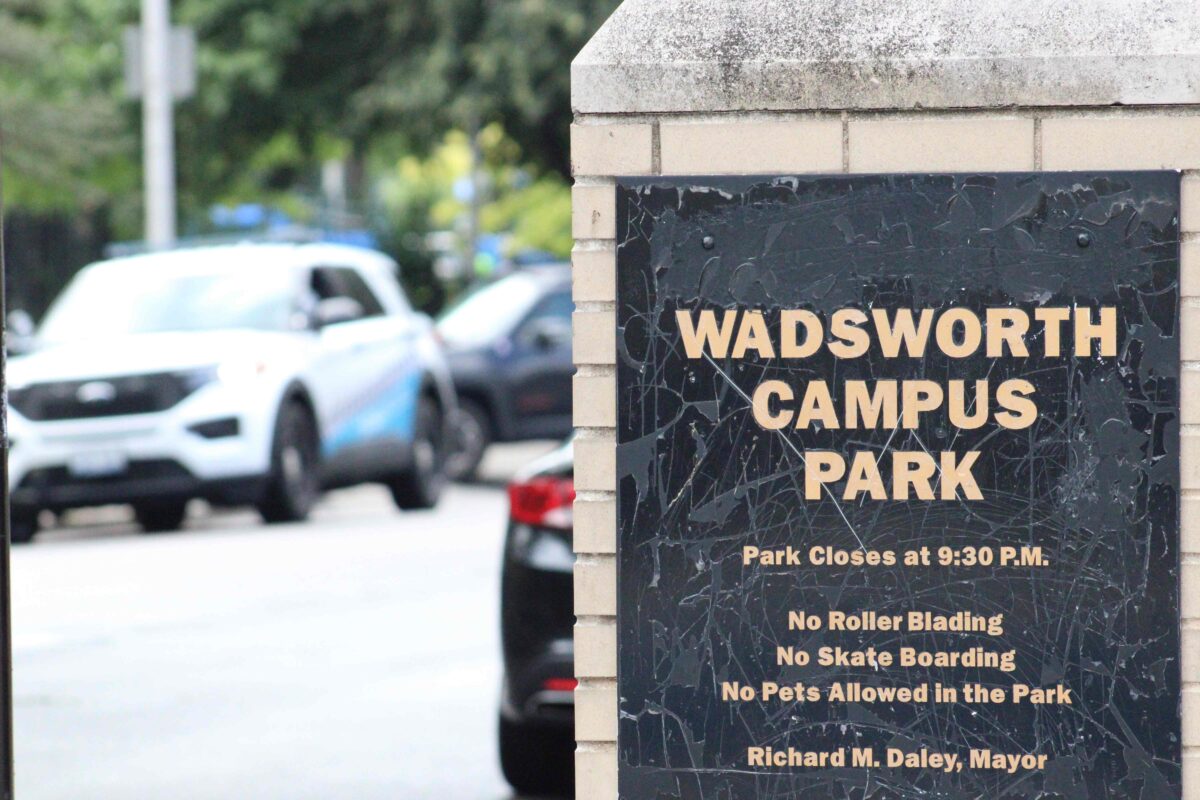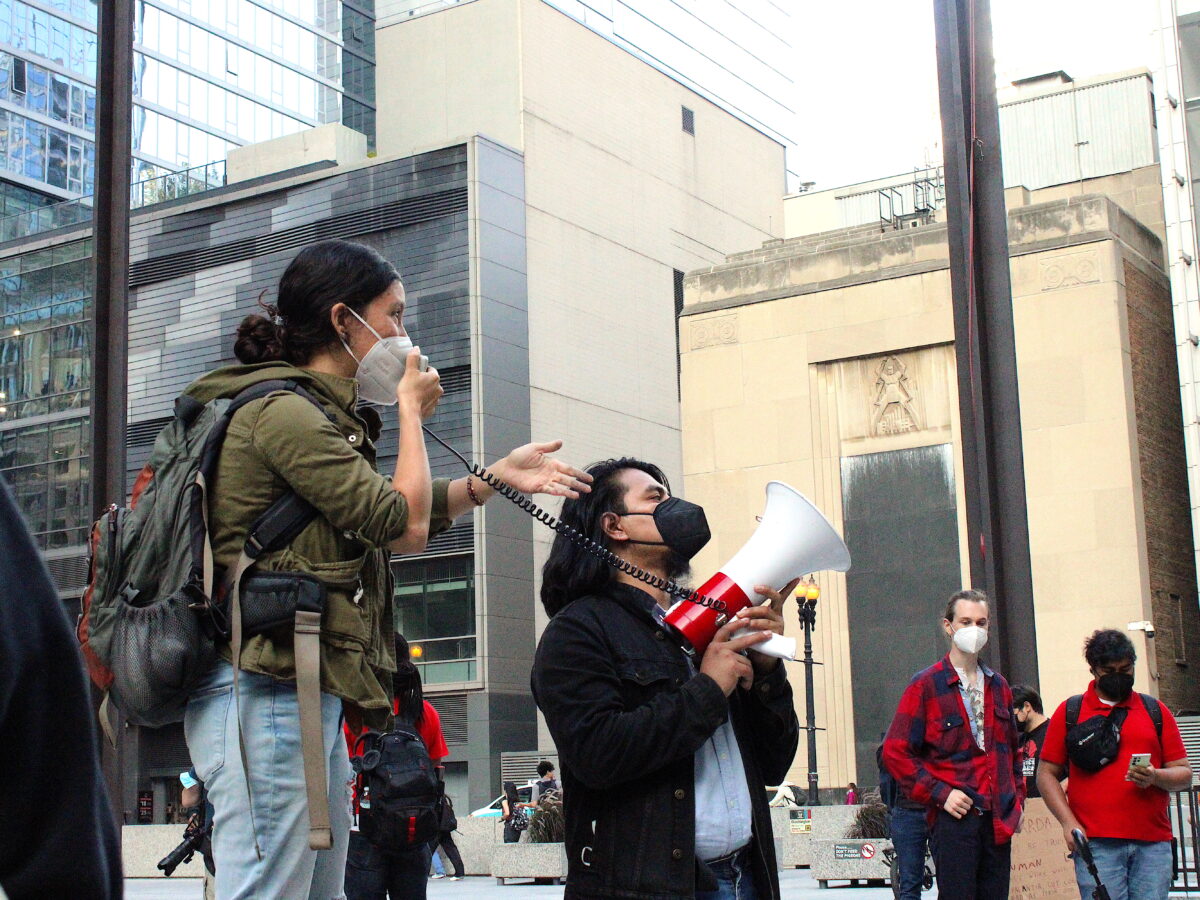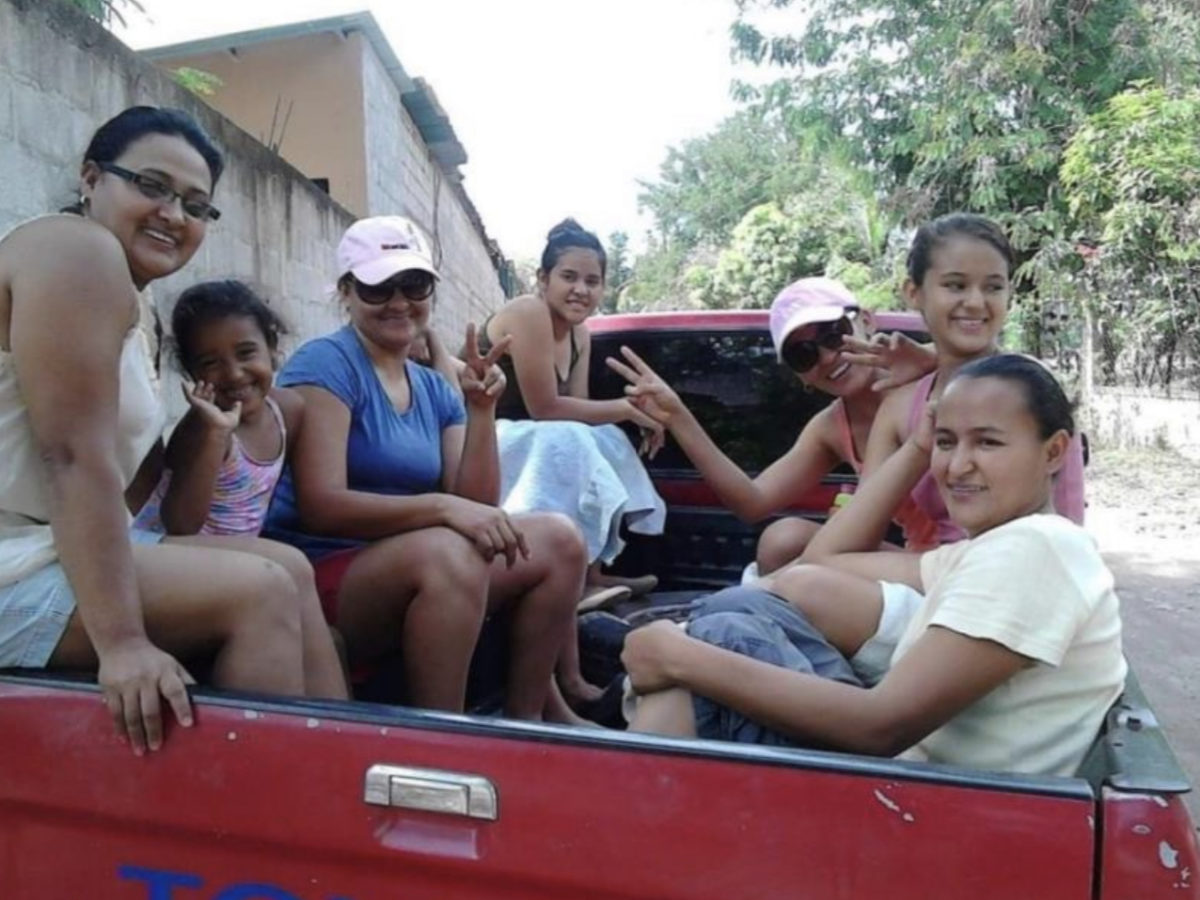Alderpersons representing both sides of the City Council’s political spectrum signed a letter urging Mayor Brandon Johnson to rescind a sixty-day limit for asylum seekers staying in city shelters. If the policy remains in place, the first shelter evictions would begin on February 1.
Immigrant and Refugee Rights Committee chair Andre Vasquez (40th Ward), who led the effort to collect signatures for the letter, said keeping the February deadline could result in about 1,900 people being evicted from shelters. “We believe the city shouldn’t be in the business of evicting people,” Vasquez said. He added that sending the letter to Johnson could convince the city to extend the limit until warmer weather in April or May.
“The 60-day eviction policy poses a significant threat to the health and safety of new arrivals,” reads a draft of the letter obtained by the Weekly. “To put it simply: the City should not be in the business of handing out eviction notices. While the 60-day limit has been temporarily extended to avoid the worst of the weather, these extensions do not address the systemic issues that prevent new arrivals from being able to leave shelters and find alternative housing.”
The early draft listed the names of alderpersons Daniel La Spata (1st), Desmon Yancy (5th), Nicole Lee (11th), Julia Ramirez (12th), Matt O’Shea (19th), Mike Rodriguez (22nd), Byron Sigcho-Lopez (25th), Ruth Cruz (30th), Felix Cardona (31st), Scott Waguespack (32nd), Bill Conway (34th), Carlos Ramirez-Rosa (35th), Gilbert Villegas (36th), Vasquez, Bennett Lawson (44th), Matt Martin (47th), Leni Manaa-Hoppenworth (48th), and Maria Hadden (49th) as signatories.
Not everyone stayed on board, however. Ramirez-Rosa and Rodriguez took their signatures off of the letter before it was released, according to a volunteer who spoke to the Weekly on the condition of anonymity.
Rodriguez told the Weekly: “There is some dissension within groups and once that gets worked out I’ll put my name on the letter.” Ramirez-Rosa said that while he had concerns about the sixty-day policy that he wants the city to address, he took his name off the letter because he also has concerns about the process that led to it.
Update January 28: Since this story was published, Vasquez tweeted that alderpersons Angela Clay (28th Ward), Samantha Nugent (39th) and Timmy Knudsen (43rd) have signed the letter.
Mayor Johnson announced the sixty-day limit in November. He has extended it twice, most recently to February 1 as temperatures dropped below zero this month. Under the policy asylum seekers would have to return to a “landing zone” near the Loop and submit a new request for a shelter spot. Mutual-aid volunteers who’d been helping asylum seekers who were staying at police stations criticized the sixty-day limit when Johnson first announced it. A volunteer who spoke to the Weekly on Thursday described the landing zone as “a parking lot with no running water.”
The letter cited reports of inadequate food, bed bug and rodent infestations, and “medical issues, including no containment of infectious diseases and failure to provide treatment for persistent medical conditions.” In December, Borderless Magazine reported on filthy conditions, cold temperatures, and poor food at a city-run shelter in Pilsen. Less than a week later, a six-year-old boy who was staying at that shelter fell ill and died.
“We’ve had a number of groups that have reached out over months with concerns about the new arrivals [and] shelter conditions,” Vasquez said. “And I think as we’re looking at a week before evictions would actually begin, a number of [volunteers] raised up the level of urgency to call for an end to the sixty-day policy.”
Mutual-aid volunteers said one asylum seeker told them migrants are treated “like animals at the shelter, but no one will rent to us and we have no one to help us here.”
The alderpersons’ letter urged the city to rescind the sixty-day shelter limit; improve shelter conditions with “culturally appropriate food and timely medical services”; improve and increase temporary and permanent housing stock “in sufficient quantity for new arrivals and long-time residents”; and immediately appoint a chief homelessness officer who would be empowered to coordinate efforts to meet the letter’s demands with state and federal agencies.
Alderperson Rossana Rodríguez-Sánchez (33rd) said that while she supports rescinding the sixty-day shelter limit, she asked her colleagues to delay releasing the letter so that additional mutual-aid groups, such as the one in her ward, be included. “It should include the voices of the different mutual aid groups that have been operating on the ground and helping so much,” she said.
Ramirez-Rosa echoed Rodríguez-Sánchez’s concerns. “Yesterday, when I signed the letter, my colleague Alderman Vasquez told me the letter came from mutual aid groups, which was not true,” he told the Weekly. “Today, I learned mutual aid leaders in my community were unaware of the letter and wanted to be involved in drafting the letter. I believe Alderman Vasquez rushed to publish and disseminate the letter to the press. I likely would have signed on in the end had we given it another day to ensure more community leaders and voices could be included in the effort.”
Asked about Rodríguez-Sánchez’s concerns, Vasquez said “the large number of mutual-aid groups who have been reaching out to us have been pretty clear” that they want the sixty-day limit rescinded.
Volunteers who spoke to the Weekly Thursday said they supported the letter and hoped it would lead to better conditions for migrants and improved transparency around shelter conditions. Johnson’s administration relied on volunteers to assist in providing food, clothing and other amenities to asylum seekers while they were staying at police stations, but volunteers say they have been prevented from accessing city-run shelters since then.
“I’m hoping to see improved conditions [at shelters], especially regarding scams and safety,” said SouthWest Collective member Jaime Groth Searle. Shelter eviction notices “make people get desperate and forego personal safety in search of a job or apartment. Clearly we need federal funding, but in the interim, official communication needs to improve.”
Rousemary Vega, an organizer with Grassroots Voices for Chicago, said there is “no transparency” from the city about conditions at the shelters, adding that volunteers have been prevented from accessing the shelters. “They’re limiting mutual aid volunteers from just doing the work, because they don’t want a stain on the [shelters’] image, because they don’t want the word to get out.They’re not allowing the help and resources, so I think it’s time for allies to call upon the mayor and hold him accountable.”
Johnson has repeatedly called on the state and federal government to provide more assistance. The state has already provided $500 million to set up emergency shelters and other services. On Wednesday, Johnson said the city is “going to work really hard to look at options we have so no one has to be out on the street” and added that the state could build shelters outside Chicago as well.
Mutual-aid volunteer Halle Quezada said Johnson’s calls for federal help “ignores our own city policies and puts up barriers to people finding independent housing.” Quezada included shelter policies prohibiting shared childcare, which prevents migrants from finding work; poor shelter conditions; and housing case managers hired from out of state among those barriers.
“Now is the time to invest in housing solutions,” Quezada said. “The systems and infrastructure needed now [will be] needed tomorrow, and we can have a better Chicago if we make it a priority.”
Asked by reporters about the shelter limit after Wednesday’s City Council meeting, Johnson said only that the state should do more. The Mayor’s Office did not immediately return the Weekly’s request for comment about the letter.
Update January 25: On Thursday evening, a spokesperson for the Mayor’s Office provided a statement that said the administration remains in the process of selecting the city’s first chief homelessness officer.
“We continue to evaluate the sixty-day policy and will provide updates as the situation develops,” the statement read. “Our plan remains providing dignified care and basic support services for asylum seekers to aid them on the aforementioned path to self-sufficiency and independence, while also being fiscally responsible and fulfilling fiduciary responsibilities to the people of the City of Chicago.”
Jim Daley is the Weekly’s investigations editor.







The school building is located in Woodlawn, not Kenwood.